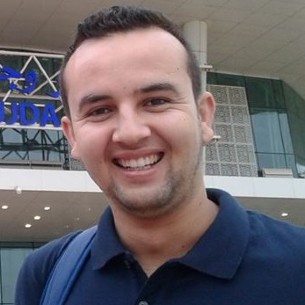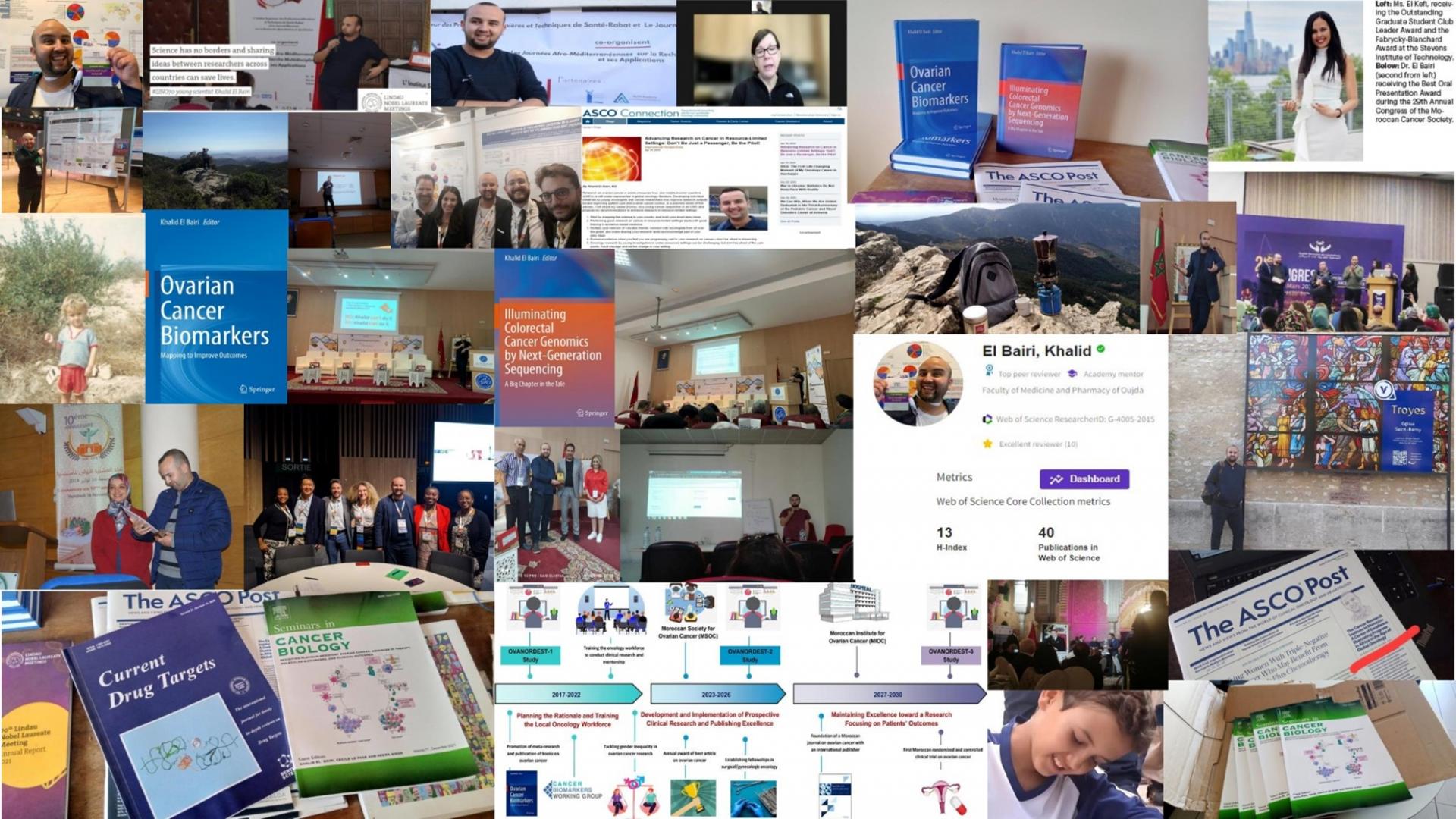 By Khalid El Bairi, MD
By Khalid El Bairi, MD
Author's note: This is the final article in my series. Read Part 1, Part 2, Part 3, Part 4, and Part 5.
In high-income countries (HICs) where research has substantially improved survival outcomes for patients with cancer, prominent specialized cancer research and care institutes such as the U.S. government-funded National Cancer Institute (NCI) have played a significant role in conducting practice-changing oncology clinical trials. However, these notable advances have largely not been achieved in low- and middle-income countries (LMICs) because of well-known issues such as poor funding and lack of adequate research infrastructures and qualified professionals.
Promisingly, marked progress has been made in building capacities in these settings and there is a remarkable trend toward the development of public institutes such as the Cancer Research Institute in Morocco to deliver improved cancer research capabilities.1 This cancer facility manages research in oncology between academic institutions, industry, and hospitals. In the era of global oncology initiatives, conducting research in LMICs offers unlimited opportunities to make an impact on the burden of cancer by addressing population-specific issues. These efforts are most effective when they involve skilled local oncologists, as they have the optimal understanding of the problems of their local communities.
With this in mind, the vision of the third part of our OVANORDEST project (2027-2030), which is my daily dream, is to build a research institute—The Moroccan Institute for Ovarian Cancer (MIOC)—that specializes in the care of patients with ovarian cancer (OC) and in conducting clinical and translational research that can improve outcomes in our setting. I envision an institution that will be dedicated to the delivery of modern cost-effective interventions for OC with the contribution of surgical and medical oncologists with expertise in this field, including a precision medicine unit. Moreover, the institute will offer training to future cancer researchers and gynecologic oncologists with fellowships and advanced education for residents in medical oncology, general surgery, and gynecology. The center will also present an appropriate environment for evidence-based practice that fits the objectives of global oncology in addition to hosting an academic journal specialized in OC research and disease management in LMICs.
Randomized clinical trials (RCTs) are considered the cornerstones of oncology research, particularly for the development of novel anticancer drugs; yet, RCTs conducted mostly in HICs do not match the global burden of cancer.2 To build RCTs that answer research questions adapted to LMICs, skilled researchers in these settings should positively impact their communities by designing research of high value that may affect survival outcomes and reduce health disparities when compared to HICs. This urgent need to implement RCTs in LMICs encouraged us to design our project. In addition, OVANORDEST-3, a prospective cohort study, will be conducted to validate a new inexpensive prognostic score that can be used in settings with limited resources to predict outcomes in OC.
Be the Change in Your Setting
Cancer researchers who build big international reputations tend to start small, by conducting quality-research in their local settings. I was always inspired by Dr. Bishal Gyawali, who developed his career in medical oncology in Nepal, an under-resourced setting, and later became an expert and a leader in the field of global oncology, evidence-based medicine, and financial toxicity of anticancer drugs. Dr. Gyawali’s career is an inspiring example to motivate young researchers in LMICs, and he shows that young oncologists based in LMICs who are passionate about improving the lives of people with cancer can raise their voice on issues related to health equity and cancer policy from their settings and participate in the global fight against low-value interventions in cancer care and low affordability of innovative treatments for patients in these communities.
In Moroccan academic institutions, grants and awards are rarely given to successful researchers to motivate them to stay on the path of excellence. During the design of our project, we included the organization of an annual award of the best research article on OC as a high priority. We have also programmed masterclasses and summer schools on research methodology in oncology to provide additional training to young researchers wishing to improve their knowledge in this field. This will hopefully encourage residents in oncology, senior investigators, and PhD students to progress in their careers in OC research. Moreover, mentorship of undergraduate medical trainees to build a career in oncology research and to pursue a residency in medical oncology was also prioritized. This may positively impact the oncology workforce shortage that is markedly observed in LMICs. Similar settings may also practice this approach to motivate their local oncologists to perform research as a part of their clinical practice.
Gender inequality in cancer research is a major issue in oncology publishing and in medical leadership generally. In a recent research work, Hornstein et al showed that women authors are under-represented in oncology publications across all authorship positions.3 This trend was notable in LMICs. In Morocco, our bibliometric study demonstrated a similar tendency for last positions in analyzed publications on OC. In fact, women authors were less represented as leading last authors.4 To mitigate this, we have also covered this issue in our project to have the role of women oncologists improved in OC research by engaging early-career women doctors in all our OVANORDEST-related publications. Very recently, in attempt to tackle gender inequities in our setting, we have developed an initiative to encourage women who are residents in medical oncology to publish as leading authors by providing adequate supervision and support. We believe science benefits from diverse perspectives and the opportunity to pursue a scientific career should be considered as a human right.
Exchanging ideas with patients, their advocates, the public, and decision makers should also be of greater importance to young oncologists. Effective science communication is key to involving a wide audience for a better public engagement in resolving health issues. Young oncologists should be involved in public speaking and improving their skills to raise awareness on emerging issues in their communities for a better public engagement. This may be achieved by participating in public dialogue with decision- and policymakers on how to improve cancer research and care. In 2021, I had the opportunity to actively participate in the Lindau Nobel Laureate Meetings. 5 This great occasion was long awaited to improve my skills in public speaking and to be engaged in serious discussions with inspiring Nobel laureates on emerging issues such as the financial toxicity of open access in LMICs.6
Writing editorials and perspectives for academic and local journals is also recommended to share one’s thoughts and raise the voice of global oncology for a wide audience. To deal with the increasing burden of cancer in LMICs and the limited available therapeutic options, young oncologists should engage their patients and their advocates as partners to drive progress by identifying challenges and opportunities together. Our project is expected to empower patients’ advocacy for OC for the first time in Morocco. In any setting, collaboration with patients is essential.
Cancer research relevant to LMICs is a necessity, not a luxury. Thus, early-career oncologists in these settings should be aware that they are the hope to advance cancer research for their community by integrating science with clinical practice. They have to find their own direction to conduct impactful and enjoyable research that improves survival outcomes and disregard unfair and unconstructive criticism.
During this phase of our project, we have also explored funding opportunities through international organizations such as Conquer Cancer, the ASCO Foundation. In addition, we hope to build partnerships with national organizations such as the Lalla Salma Foundation and the Cancer Research Institute to have our project funded. In LMICs, financial barriers are well-known factors that negatively affect scientific productivity.7,8 Building on this, young oncologists from LMICs should plan to apply for similar grants as they play an integral role in generating outstanding study findings that have an impact on cancer care and control. Several funding opportunities and grants for cancer research can be found in our recent methodological guide published in JCO Global Oncology.9
Throughout this article series, I have shared quotes from Nobel Prize recipients that I find personally inspiring. Above all, they remind me to dream big and to believe in the value of the work I have set out to achieve. It feels fitting to close with these words from Ellen Johnson Sirleaf, who received the Nobel Peace Prize in 2011: “If your dreams do not scare you, they are not big enough.”
Acknowledgments:
This ASCO Connection article series comes to an end. I hope that sharing my thoughts through these six pieces, written from my heart, will help young oncologists across the globe to progress in their scientific career. My message for you: science is enjoyable, but also think about your family and enjoy your everyday life.
I would like to thank all ASCO staff and leadership for supporting me during this journey, with a particular “hat’s off” to ASCO past president Dr. Sandra Swain for the beautiful work she did and is still doing to help us in LMICs, and to Virginia Anderson for reviewing all my papers before publication.
I want to express my gratitude to my friend Dr. Dario Trapani who supported my scientific journey. He is an incredibly wonderful oncologist.
I can’t forget the unceasing care of Dr. Hind Kadiri (katkoutti), who is still giving me positive energy to stay on my research path. Would you marry me?

Dr. El Bairi is a research associate in the Department of Medical Oncology at Mohammed VI University Hospital, in Oujda, Morocco, and he is preparing for a career in medical oncology. He joined the ASCO Trainee & Early Career Advisory Group as a member for the 2022-2023 term. The contents of this paper reflect the author's perspective and not that of his institution of affiliation. Follow Dr. El Bairi on Twitter @elbairikhalid19. Disclosure.
References
- El Bairi K. The Cancer Research Institute in Morocco: A Center of Excellence Illustrating Progress in Africa in the Age of Global Oncology. The ASCO Post. Dec 25, 2021.
- Wells JC, Sharma S, Del Paggio JC, et al. An Analysis of Contemporary Oncology Randomized Clinical Trials From Low/Middle-Income vs High-Income Countries. JAMA Oncol. 2021;7:379-85.
- Hornstein P, Tuyishime H, Mutebi M, et al. Authorship Equity and Gender Representation in Global Oncology Publications. JCO Glob Oncol. 2022;8:e2100369.
- El Bairi K, Al Jarroudi O, Afqir S. Tracing ovarian cancer research in Morocco: A bibliometric analysis. Gynecol Oncol Rep. 2021;37:100777.
- El Bairi K. How Corona Changed My Research – and My Way to Lindau. Lindau Nobel Laureate Meetings Blog. Sep 18, 2020.
- El Bairi K. The Financial Toxicity of Open Access in Settings With Limited Resources. Lindau Nobel Laureate Meetings Open Science.
- Alemayehu C, Mitchell G, Nikles J. Barriers for conducting clinical trials in developing countries- a systematic review. Int J Equity Health. 2018;17:37.
- Barrios CH, Mano MS. Is Independent Clinical Research Possible in Low- and Middle-Income Countries? A Roadmap to Address Persistent and New Barriers and Challenges. Am Soc Clin Oncol Educ Book. 2021;41:1-10.
- El Bairi K, Al Jarroudi O, Afqir S. Practical Tools and Guidelines for Young Oncologists From Resource-Limited Settings to Publish Excellence and Advance Their Career. JCO Glob Oncol. 2021;7:1668-81.


Recent posts